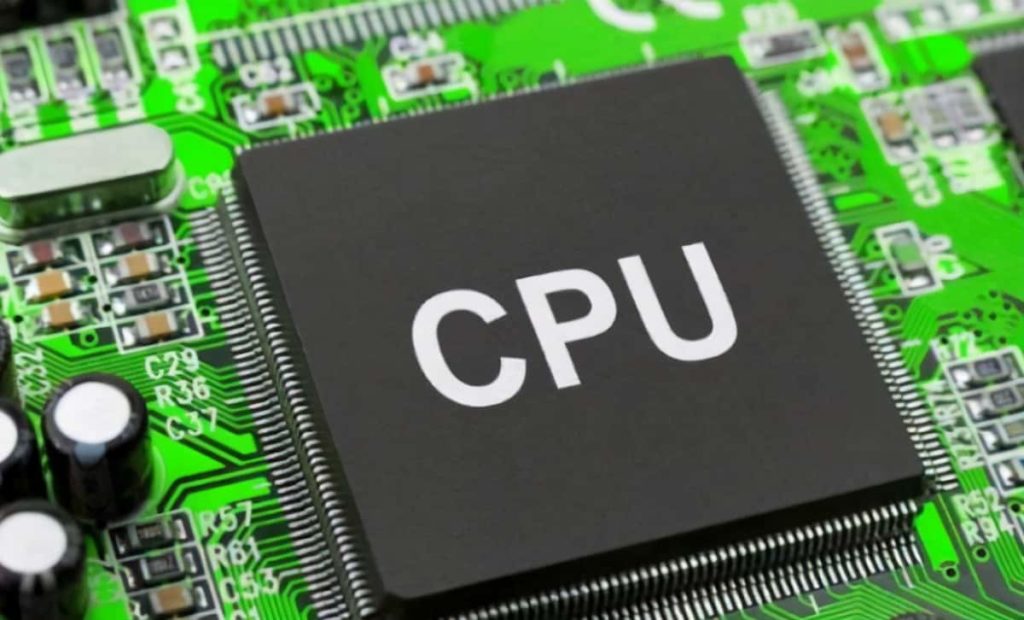Modern CPUs have billions of transistors, which are essential for processing tasks. The number of transistors impacts speed, multitasking, and energy efficiency in CPUs.
In this article, we’ll break down how many transistors are in modern CPUs, how they work, and why their count is so important.
What Are Transistors in a CPU?

Transistors are the building blocks of any CPU. They act as tiny switches that can either allow or block electrical signals, forming the basis of all calculations and operations a computer performs.
More transistors generally mean more processing power, enabling CPUs to handle more complex tasks and run more applications simultaneously.
Evolution of Transistors in CPUs:
Since the invention of the first CPUs, the number of transistors in processors has grown at a staggering rate. This growth follows Moore’s Law, which predicted that the number of transistors on a chip would double approximately every two years.
- 1971: The Intel 4004, the world’s first microprocessor, contained just 2,300 transistors.
- 1989: The Intel 80486 processor had around 1.2 million transistors.
- 2008: Intel’s Core i7-920 CPU had over 731 million transistors.
- 2020: AMD’s Ryzen 9 3950X features more than 9 billion transistors.
How Many Transistors Are in Modern CPUs?
Today’s cutting-edge processors have billions of transistors. The exact count depends on the type of processor, its architecture, and its intended use (desktop, mobile, server, etc.). For example:
- Intel Core i9-13900K (2023): Over 24 billion transistors.
- Apple M1 Ultra (2022): More than 114 billion transistors, due to its use of a multi-die chip design.
- AMD EPYC Rome (server CPU): Around 39.5 billion transistors.
These enormous transistor counts allow modern CPUs to deliver outstanding performance across a range of tasks, from gaming to AI processing and data analysis.
Why More Transistors Matter:
The number of transistors in a CPU correlates with its processing capabilities. More transistors enable:
- Increased Speed: CPUs with more transistors can perform more operations per second, resulting in faster performance.
- Better Multitasking: Higher transistor counts improve the CPU’s ability to handle multiple applications and processes simultaneously.
- Power Efficiency: Advances in transistor technology allow modern CPUs to perform faster while consuming less power, making devices more energy-efficient.
Also Read: How To Reset Cpu – A Complete Guide!
How Are Transistors Made Smaller?
As manufacturers continue to shrink transistors, CPUs can fit more of them into the same physical space. This miniaturization is achieved through advanced fabrication processes, often measured in nanometers (nm). The smaller the transistors, the more can fit on a chip, leading to better performance.
- 10nm and below: Modern processors, such as Intel’s 10nm and AMD’s 7nm chips, feature extremely small transistors.
- 2nm and beyond: Companies like IBM have even demonstrated working chips with 2nm transistors, marking a significant leap in CPU technology.
Future Trends in Transistor Development:
The future of CPU development will likely see the integration of even more transistors, potentially surpassing the 1 trillion mark in the coming decades.
However, as transistor sizes approach physical limits, new technologies like quantum computing and advanced 3D chip stacking may change the landscape of CPU design.
FAQ’s
1. What are transistors in a CPU?
Transistors are tiny switches that control electrical signals in a CPU, forming the basis of its operations.
2. How has the number of transistors in CPUs evolved?
The number of transistors in CPUs has exponentially increased, from 2,300 in the Intel 4004 to over 100 billion in modern processors.
3. How many transistors are in a modern CPU like the Intel Core i9-13900K?
The Intel Core i9-13900K has over 24 billion transistors.
4. Why are more transistors important in a CPU?
More transistors improve processing speed, multitasking capabilities, and energy efficiency.
5. What is the relationship between transistors and CPU performance?
More transistors enable a CPU to perform more operations per second, improving overall performance.
6. How are transistors made smaller?
Manufacturers use advanced fabrication processes, measured in nanometers, to shrink transistors and fit more on a chip.
7. What are the sizes of transistors in modern processors?
Modern processors, such as Intel’s 10nm and AMD’s 7nm chips, use extremely small transistors.
8. What is Moore’s Law?
Moore’s Law predicts that the number of transistors on a chip will double approximately every two years.
9. What is the future of transistor development in CPUs?
Future CPUs may surpass 1 trillion transistors, with new technologies like 3D chip stacking and quantum computing.
10. Does having more transistors always mean better CPU performance?
Generally, yes, but software optimization and power consumption also play a role in performance.
Conclusion
The number of transistors in a CPU reflects its power and efficiency. From a few thousand transistors to over 100 billion today, this growth has transformed computing. As technology advances, transistor counts will continue to rise, enhancing performance and efficiency.



